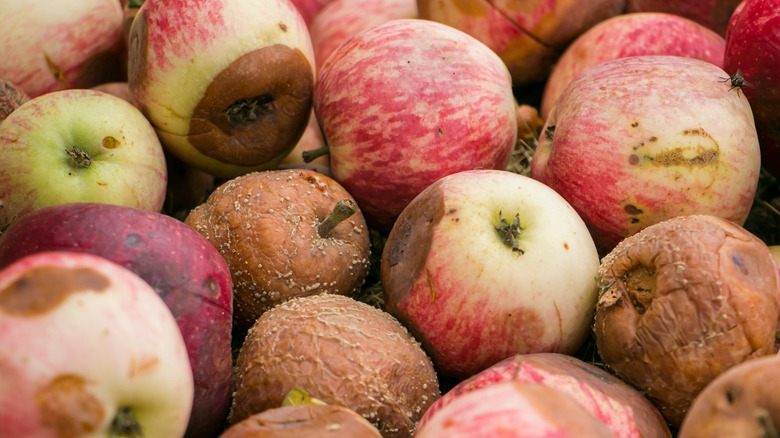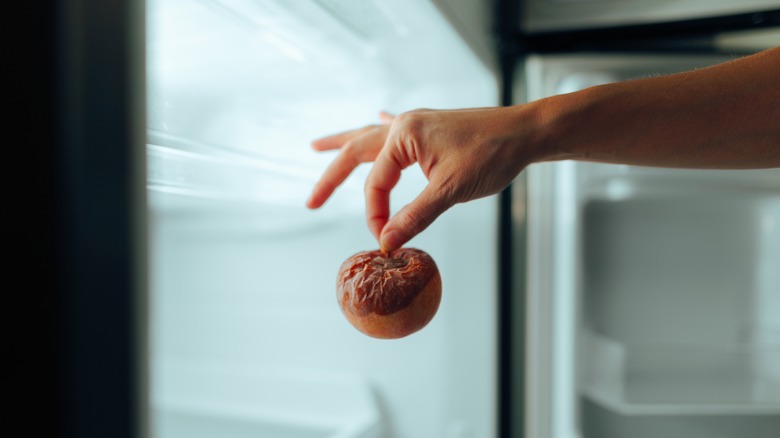The Telltale Sign That Your Apple Is Rotten Right To The Core
Apples are one of the heartiest, longest-lasting fruits. There are types that can even last over a year with the proper storage. But what does happen when an apple's time runs out, or if it hasn't been stored in optimal conditions? Apples can be a bit tricky in this department: There are different varieties in different hues, and some spots in varying shades aren't uncommon nor are they signs the apple is bad or unsafe to eat. So, how do you know when the apple is indeed unsafe or, at the very least, unpleasant to eat?
If those spots on an apple are brown, that's usually the most telling sign of spoilage. These spots can get soft and mushy, and even ooze. If your apple shows any of these indicators, toss that fruit. These spots show up over time, but their development can be expedited if an apple is dropped hard enough or if it's cut into. This is because that impact causes an apple's cells to pop open and let chemicals and oxygens mingle throughout the fruit, creating and quickening chemical reactions. Polyphenols from the cells are exposed to enzymes, which causes the browning, undesirable in both texture and flavor. When you cut into a perfectly fresh apple and it sits for a bit, this is what explains its browning; that apple is safe to eat for a little while, but its quality is degrading by the moment.
Other signs of spoiled apples
Other than a fresh, just-sliced apple, which you can keep from browning with a salt-water soak, no number of brown spots on your apple is a promising sign. But there are other things to look for to determine if your apple is rotten. In general, the texture will start to change as apples age. Older apples may be less crisp and even get grainy and mealy. These are safe to eat, but won't have that satisfying crunch or as much flavor. This consistency will advance into mushiness as an apple rots. At this point, you also might see fuzzy green, blue, or black mold. Beyond things you can see and feel, rotting apples will also develop undesirable odors. Instead of their signature sweet smell, they'll smell sharp, tangy, and vinegar-like. At that point, there's no way that apple will taste good and it could even cause illness.
In order to keep this rot at bay for as long as possible, keep a few storage tips in mind. Don't store a bunch of apples with any already-rotten ones in the mix. Apples release a hormone called ethylene that causes this aging, and it can reach any other apples nearby. They can last on your counter for a week or two, but the fridge is your best bet. They can last six to eight weeks on average if you refrigerate them the right way, which simply requires putting them in the crisper drawer.

